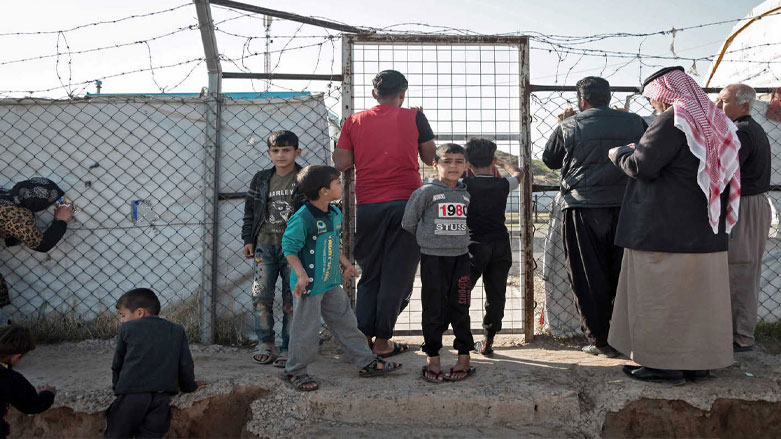KRG covers 70 percent of expenditures of refugees and IDPs: Interior Minister
“Anyone who wishes to voluntarily return to their places of origin, we open the doors and support them,” Ahmed said.

ERBIL (Kurdistan 24) – The Kurdistan Regional Government (KRG) covers roughly 70 percent of the cost of hosting internationally displaced persons (IDPs) and refugees and the remaining portion is handled by the international NGOs and federal government, according to the Kurdistan Region’s interior minister.
The remarks by Rebar Ahmed came during a press conference in response to a question about an allegation by the Iraqi migration ministry on the return of internally displaced people to their places of origin. The ministry had claimed the Kurdish government hampers their return.
“Nearly 70 percent of all expenditures of IDPs and refugees have been covered by the KRG,” Ahmed said, noting that the Kurdish government handled that despite the Region’s economic crisis, the fight against the so-called Islamic State, and cuts to the KRG budget by Baghdad.
The remaining 30 percent is covered mainly by the UN agencies while the Iraqi federal government handled only a “small portion,” he added.
The Kurdistan Region is currently hosting more than 930,000 refugees and IDPs, according to the latest data published by the government’s Joint Crisis Center.
The Iraqi government has forced camps to close across the country, shutting down more than 60 percent of host communities so far and aiming for a complete closure of the facilities this year.
That push has prompted international criticism, including from the UN, European Union, and other NGOs operating in the country who fear such closures would exacerbate risks to the vulnerable population, particularly women and children.
“The KRG’s stance is as of United Nations agencies,” Ahmed said, referring to the concerns international humanitarian organizations have raised on the forceful return of IDPs.
Security clearances are one of the major obstacles facing IDPs who want to return home, according to rights groups, which have reported that returnees are blocked at checkpoints for not having security permits.
The KRG is not in favor of closing the camps for political reasons, Ahmed said, adding that the government previously raised that objection to Iraqi and international officials in meetings.
“We are not in agreement with forcing people to return to a place devoid of safety, stability, and services,” the Kurdish minister said, adding that the Kurdistan Region has always been a “safe shelter” for all those who need refuge.
He said the government has previously raised objections to Iraqi and international officials in meetings.
Prime Minister Masrour Barzani previously announced that “the camps will remain open until conditions allow for their voluntary and dignified return to their homes.”
The interior minister indicated that since the influx of IDPs in the Region in early 2014, around 1.5 million people have returned home.
“Anyone who wishes to voluntarily return to their places of origin, we open the doors and support them,” Ahmed said.
Editing by Joanne Stocker-Kelly